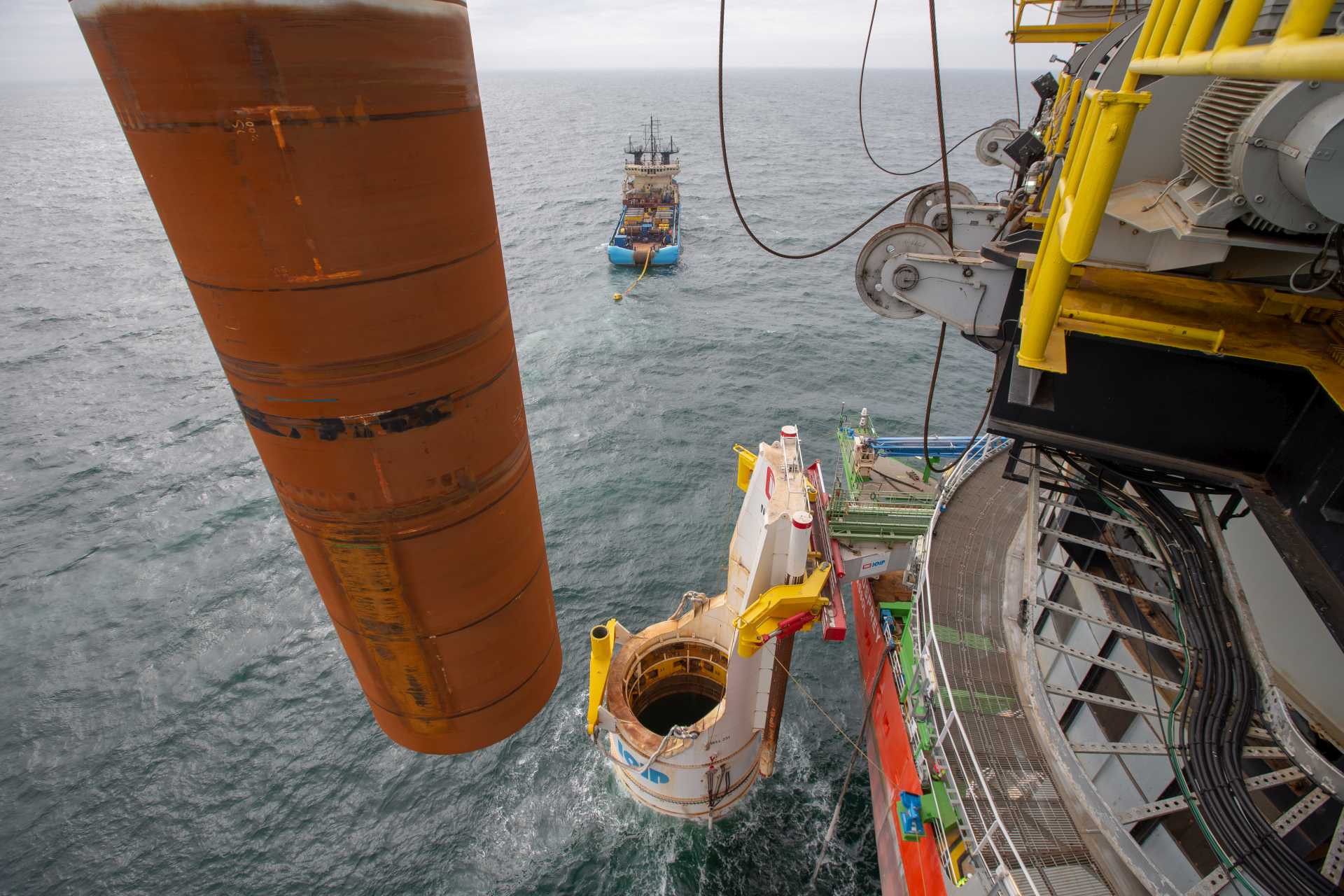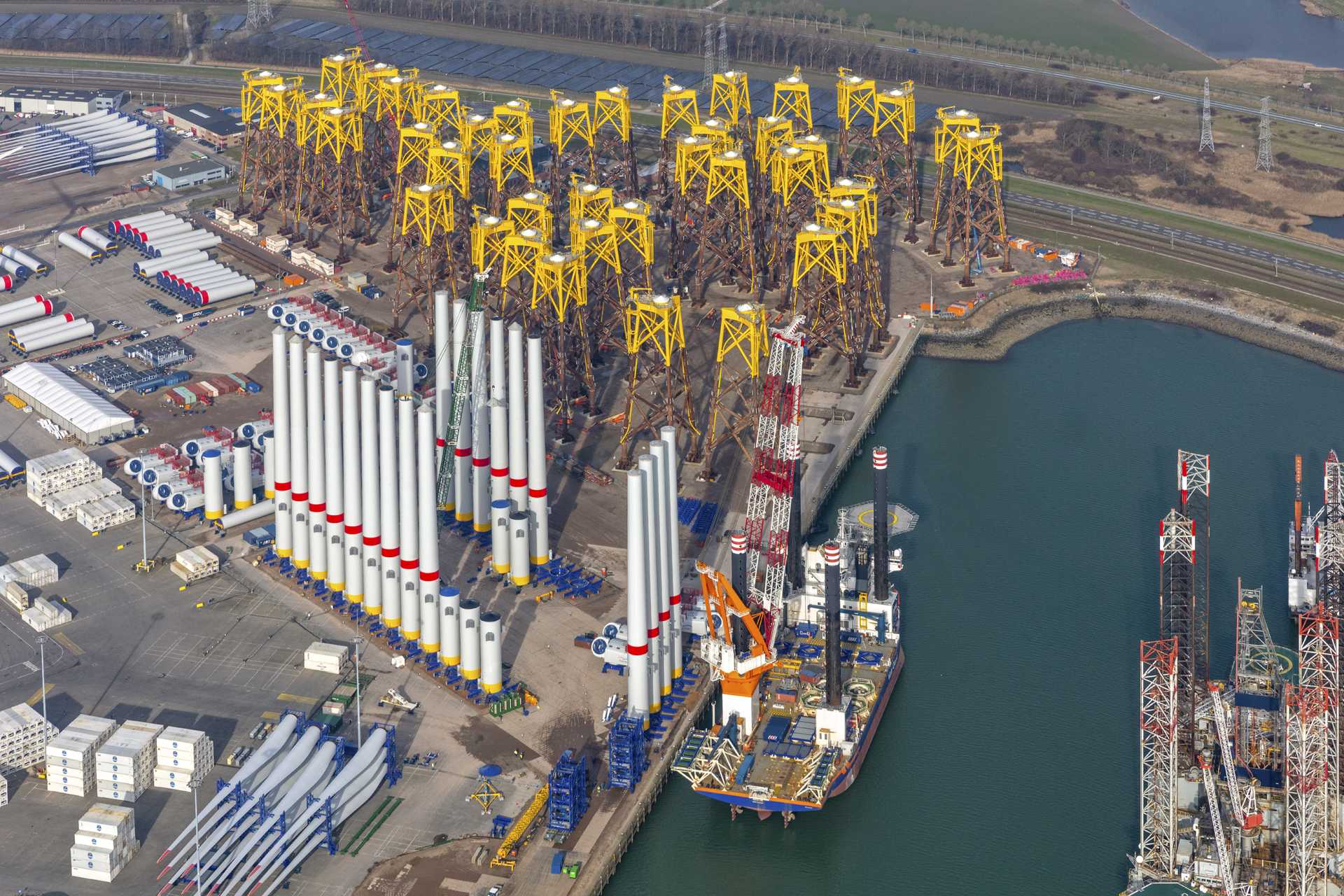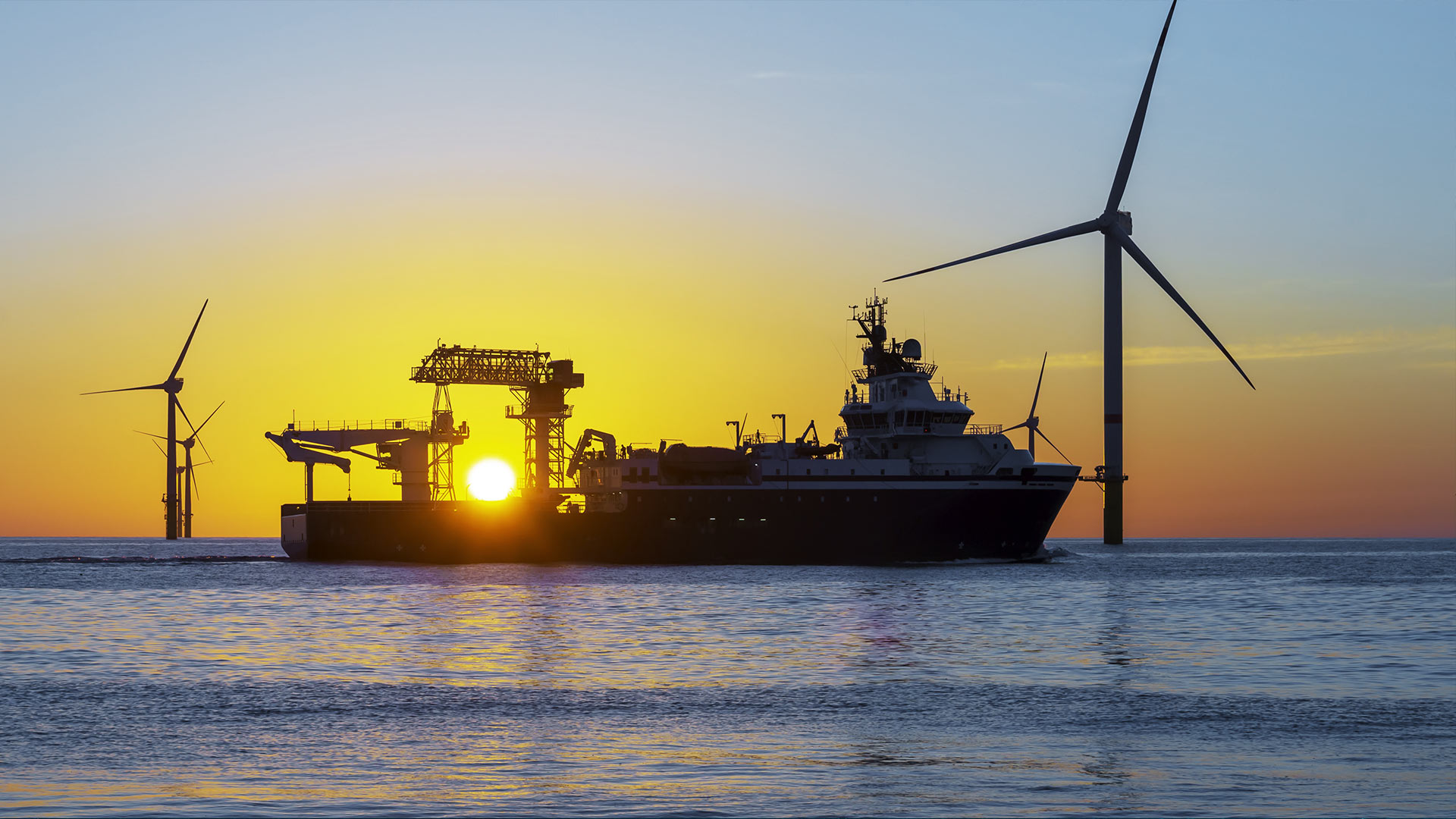OFFSHORE WIND FARMS
Offshore wind farms are used in the sea to generate electricity from wind energy. The term offshore in the wind industry covers both nearshore water areas such as lakes, and sheltered coastal areas as well as deeper areas.
OFFSHORE WIND POWER
In general, wind speed on sea is are higher than on land, so that the electricity potential to harnest by offshore wind power is higher. Furthermore, public acceptance for the construction of offshore wind farms is generally higher compared to onshore turbines.
OFFSHORE WIND TURBINES
Most offshore wind farms feature wind turbines with fixed foundations in relatively shallow waters. In 2009, the average rated capacity of an offshore wind turbine in Europe was about 3 MW, and capacities continue to increase. By 2021, turbines of 15 MW will be ready for series production and development for 20 MW turbines is already underway.
First powerful wind farms are also being created with floating wind turbines; 65 MW had been installed by the end of 2019. The floating technology is still in its infancy and one can expect significant further development in the coming years
OFFSHORE WIND PROJECTS
In 2020, Hornsea Project One in the UK represents the world’s largest offshore wind farm with 1.2 GW. Such increase in size will be followed by further large scale projects such as Dogger Bank in the UK with 4.8 GW and Greater Changhua in Taiwan with 2.4 GW.
Contact us

OUR SERVICES FOR THE OFFSHORE RENEWABLES INDUSTRY
The offshore renewables industry covers wind engery offshore, wave and tidal energy. The majority of renewable energy offshore is generated from wind power – offshore windparks are built, maintained and monitored for this purpose. GRS.Offshore Renewables offers comprehensive services for these large offshore renewable energy projects. The projects can be divided into different planning phases.
Each phase is accompanied by GRS.Offshore Renewables with a special service.
WIND FARM LIFECYCLE
DEVELOPMENT AND PROJECT MANAGEMENT:
GRS Strategy+Sourcing advises clients on Concept and project management, Tender support AND Tender management as well as contract negotiation.
INSTALLATION AND COMMISSIONING:
This section includes the following offshore work packages:
– Offshore Seabed Surveys
– OFFSHORE UXO CLEARANCE
– Offshore Foundation Installation
– Offshore Substation Installation
– Offshore Cable installation
– OFFSHORE TOWER AND Turbine installation
– Commissioning of offshore wind farm
– OPERATION & MAINTENANCE (MONITORING OF the ongoing operation of the wind turbines and associated transmission assets.)
– offshore Cargo run / logistcs
DECOMMISSIONING:
At the end of the nominal design life of an offshore wind farm, there are a number of options:
1) Extend the operational life of existing assets
2) repower the site with new (larger) turbines
3) fully decommission the site.
MAIN OFFSHORE ASSETS
Due to our global network of offshore service providers and our vessel database with more than 100,000 offshore vessels, we are able to provide vessels, service providers and offshore equipment for all planning and construction phases of an offshore wind farm.
Our team brokers independently all types of offshore vessels for charter or purchase.
MAIN OFFSHORE VESSEL TYPES:
Survey vessel, MULTICAT VESSEL, Installation vessel, Semisubmersible Vessel, Dive Support Vessel (DSV), Crew Transfer Vessel (CTV), Crane Vessel, Construction Vessel, Accommodation Vessel, Accommodation Platform, Jack-Up Vessel, Walk-2-Work Vessel, Anchor Handling Tug, Tugboats, Platform Supply Vessel, Field Suport Vessel, Guard Vessel, Barges
OFFSHORE EQUIPMENT VIA GRS
GRS ALSO BROKERS special offshore equipment for charter or purchase, such as:
Remotely operating Vehicle (ROV), Offshore crane, Gangway / Transfer system, Offshore container, Offshore pontoon, Cable carousel / Turntable, Helicopter deck
Explore our 3D vessel portfolio or discover our Renewables offshore services. If you need more details please contact us anytime!


